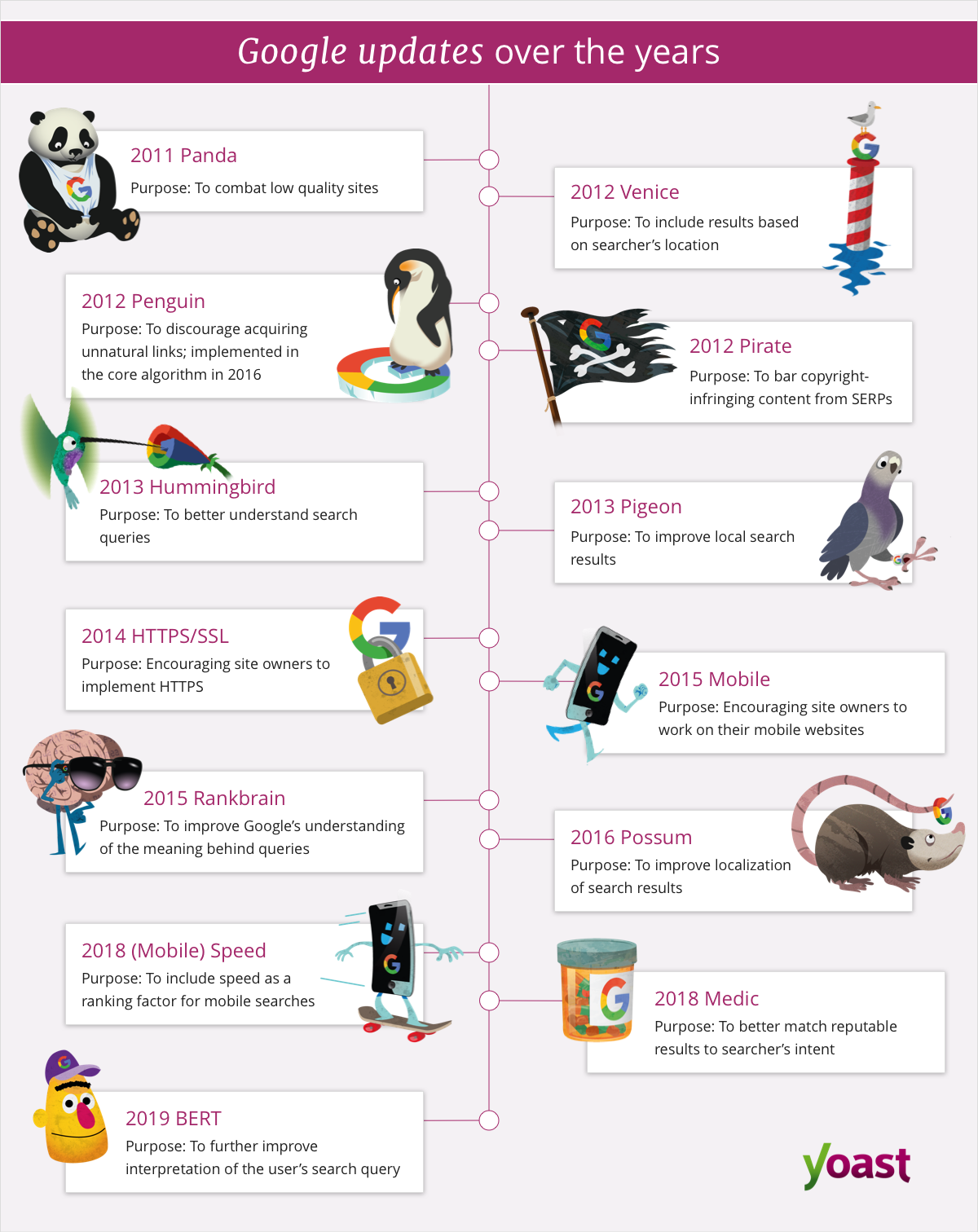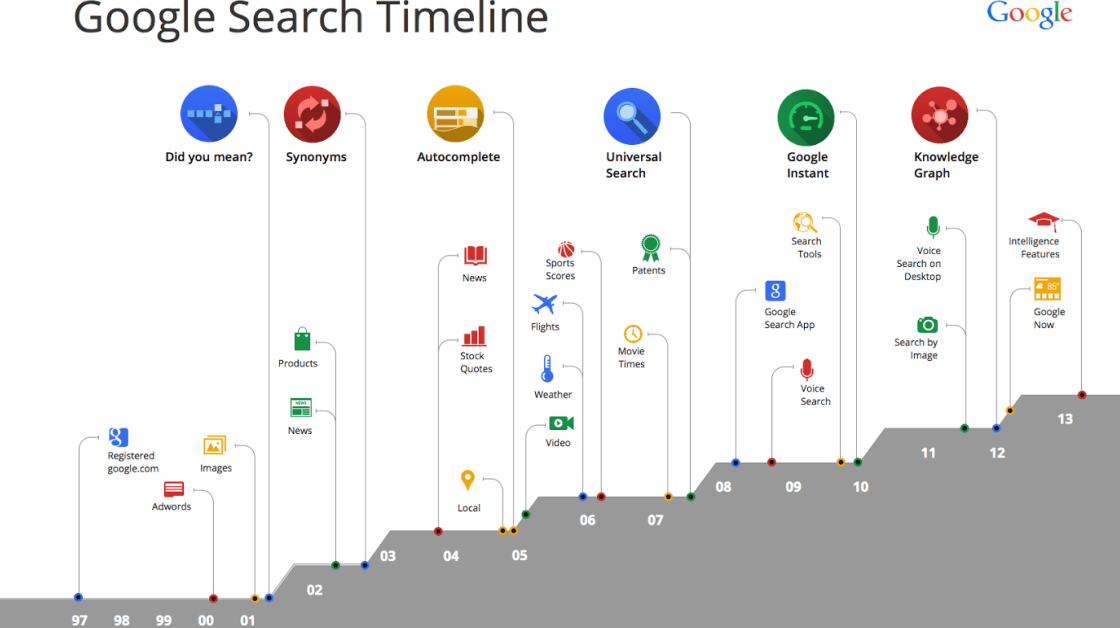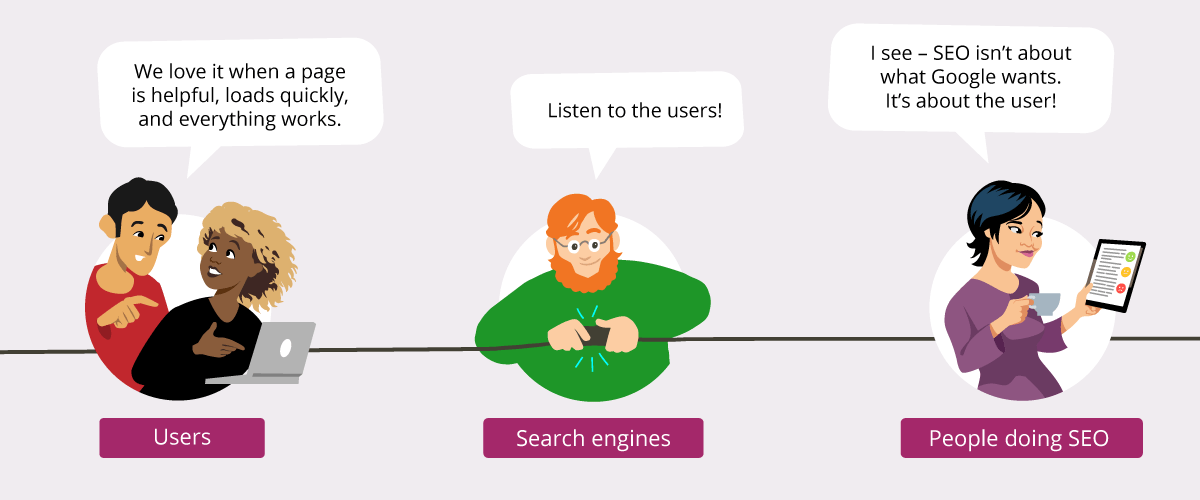A long term SEO strategy? Knowing what Google wants is the key

Ranking signals, algorithm updates. One day you have the right number of keywords, the next day it’s too many. It might leave you wondering what Google wants to achieve. Or worrying what all these search changes mean for SEO in the long term. Will that change, too?
Maybe you’re thinking about doing an SEO audit again after reading announcements about Google’s 2021 Core Updates. Before you jump in and start making changes, why not take a moment to think about where all these changes are going. Is there a better way to do SEO so that you don’t need to freak out about every big algorithm update? We think there is — keep reading to find out how.
The reasoning behind Google search changes
Just like any other website, Google has something to offer. Its core product is Google search; its goal is to “organize the world’s information and make it universally accessible and useful”. Not only that, they also put a strong focus on providing great experiences for their users. So the big “secret” behind its ranking algorithm is this: Google wants to connect its users with the best pages and websites that deliver what they’re searching for. There’s not really anything else to it.
What Google wants is to make their users happy by delivering better search experiences. Part of the battle for Google is to prevent their ranking factors from being misused to push spammy websites higher in the search results. Another part of the story is this: understanding what people want from their searches is really difficult. Making changes to search helps Google to make sure the best, most relevant results get to the top. Making changes also lets Google add cool new features to the search page too!
What kind of changes does Google make?
Since the Panda update in 2011, SEO has changed a lot. Google has tried to do two main things with all these changes: firstly, to prevent poor quality websites from ‘tricking’ its algorithm to achieve high ranking SERP positions, and secondly, to create a better search experience for their users.
Here are some of the biggest ranking algorithm changes Google has made in the past decade:

Besides that, just take a look at how the features on the search results page have evolved over time, too:

What does Google want then, if they keep changing things?
Does Google expect you to jump into action every time there’s an update or a new feature? No — and you should rarely (if ever) need to make significant changes to your website just because of Google updates. (If you do find yourself needing to make big changes, it’s probably because you already had a low quality website and Google figured out how to identify that). Having a well-made website, quality content, and a suitable keyword strategy are probably all you need to worry about for long term SEO. Why are these things enough? It’s simple: if your users love your site and your content, chances are high that Google will love it too.
Google’s algorithm keeps changing to try and get better at identifying relevant, quality pages. So if you have a good website and useful content, Google should only get better at recognizing that as time goes on.
In a nutshell: Google wants you to stop trying to optimize for the search results algorithm, and think about your own users instead.
A long term SEO strategy to get ahead of algorithm updates
We can’t guarantee that this strategy is foolproof. (We can’t see the future, after all). Nevertheless, we believe looking at things from a holistic, user-centric perspective provides a strong foundation for any long term SEO strategy. Here are three principles that should continue to serve you well as time goes on:
Rule #1: always put users first!
Putting users first doesn’t mean you can just forget about SEO. You should still maintain your website, optimize your pages and monitor performance — but do these things with real users in mind.

For instance, you shouldn’t wait for Google to make secure connections a ranking requirement. Users already prefer secure websites, so you should switch your website to https://, if you haven’t done so already. Or take another example — say your website is slow to load because you’ve got an HD video auto-playing on repeat on your homepage… you’ll need to make your website faster, one way or another. You can tell yourself you’re making it faster because it’s what Google wants, but it’s your website visitors who will really benefit.
Rule #2: keep up with competitor benchmarks
Good SEO is not about jumping whenever Google claps. But you do need to keep up with changes in web development and digital trends. You don’t want to be stuck in the dark ages of the internet while everyone else is zooming ahead, do you? Even if you’re not keeping an eye on how your competitors are improving, you can be sure that many of your users are noticing things like that.
Ideally, you’ll want to look at your competitors and use their websites as a benchmark to compare your own website to. Are they doing anything you’re not doing? You don’t need to copy every move your competitors make. But if all of your competitors have recently upgraded their design, for example, then you might want to consider upgrading your templates, too.
Rule #3: keep your research and evaluation cycle going
There are two core parts of SEO that are definitely here to stay: search intention and keyword research. It’s tempting to think you can do your keyword and audience research once, and then leave it that way forever. In some situations that might work, but in many cases it won’t. The fact is that people’s behavior changes over time, and the words that people use in their searches can change over time too.
An example of this is the word ‘switch’. Until a few years ago, a switch was generally just a component of electrical or mechanical systems. You might expect to find light switches in your top results if you searched for ‘switch’ in 2015. But in 2016, Nintendo announced the release of its Switch console. Imagine you were doing SEO for a company that sells traditional electrical switches. If you weren’t monitoring your keywords and their relation to search intention, how long do you think it would take before you realized what was going on?
Ongoing research and evaluation will continue playing an important part in any long-term SEO strategy because the world keeps changing, not because what Google wants has changed.
So, stop pleasing Google!
Start focusing on your visitors, on the people that want to buy your product or services. All the developments Google has made focus on one thing: quality websites that really help users. That goes for Panda, but also for UX, responsiveness, speed optimization, etc. Mobile-first? Yes. And equally important user-first as well. It’s no surprise at all that Google recently announced page experience as a new ranking factor. So, it’s time to stop trying to please Google and think about your users instead! Check out this article from Marieke for more tips to create a sustainable SEO strategy.
Read more: Should I follow every change Google makes? »


Hay que ponerse en la piel del cliente y pensar desde ahí, no desde tu punto de vista. Excelente articulo.
Bien dicho, gracias Juan!
That is the best explanation of what Google and other search engines expect. It’s true that Google wants the best experience for their users, the people who are using the search engines to find what they’re looking for.
Thank you, Jonathan!
That is a very nice write-up. It’s always good to keep up with the competition. But how do we know what users are searching now
Thank you! Keyword research can help you figure out what users are searching for right now, so make sure to check out our ultimate guide to keyword research :)